
Georgia's location, nestled between the Black Sea, Russia, and Turkey, renders it strategically important. It is developing as the gateway from the Black Sea to the Caucasus and the larger Caspian region, but also serves as a buffer between Russia and Turkey. Georgia has a long and tumultuous relationship with Russia, but it is reaching out to its other neighbours and looking to the West in search of alternatives and opportunities. It signed a partnership and cooperation agreement with the European Union, participates in the Partnership for Peace, and encourages foreign investment. France, Germany, South Korea, the United Kingdom, and the United States all have embassies in Tbilisi. Georgia in 2004-2008 sought to become a member of NATO, but did not succeed in the face of strong Russian opposition.
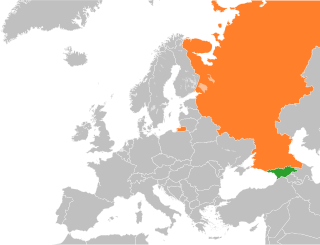
Russia and Georgia have had relations for centuries. The contacts between the two date back to the 15th and 16th centuries, and the most important stage started in the 1580s, when the Georgian kingdom of Kakheti and the Russian Empire signed a treaty of alliance in 1587. Since then, Georgia–Russia relations have been developing vibrantly and culminated in the Treaty of Georgievsk, which established eastern Georgia as a protectorate of Russia. At that time, Georgia saw Russia as a powerful Christian and modernizing neighbor, capable of protecting Georgia from invading Muslim empires and North Caucasian raiders.

Iran and Georgia have had relations for millennia, although official diplomatic relations between the two nations in the 20th century were established on May 15, 1992. Georgia is represented by its embassy in Tehran, while Iran has its representative embassy in Tbilisi.
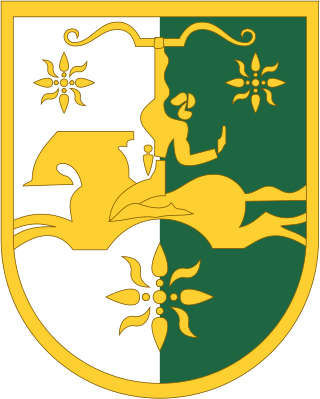
The Republic of Abkhazia is a partially recognized state in the South Caucasus which declared independence from Georgia during the War in Abkhazia (1992–1993). At the time, the Soviet Union had recently collapsed (1991).

Canada–Georgia relations refers to the current and historical relations between Canada and Georgia. Both nations are members of the United Nations.

Georgian-Japanese relations were established on August 3, 1992, just over one year since Georgia became independent from the Soviet Union. Since November 2006, Georgia has maintained an embassy in Tokyo. Japan has an embassy in Tbilisi.

Abkhazia–Russia relations is the bilateral relationship between the Republic of Abkhazia and the Russian Federation. Russia recognised Abkhazia on 26 August 2008, following the August 2008 Russo-Georgian War. Abkhazia and Russia established diplomatic relations on 9 September 2008.

Bulgarian-Chinese relations are foreign relations between Bulgaria and China. Both countries established diplomatic relations on October 4, 1949. Bulgaria has an embassy in Beijing, China. China has an embassy in Sofia, Bulgaria.
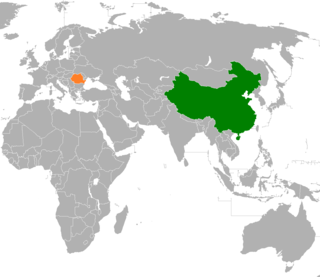
The Kingdom of Romania and Republic of China (ROC) began relations on July 5, 1939.

Georgia and India maintain diplomatic relations. The Embassy of India in Yerevan, Armenia is concurrently accredited to Georgia. Georgia maintains an embassy in New Delhi.

Abkhazia–Venezuela relations refers to bilateral relations between the breakaway Republic of Abkhazia and Venezuela. Venezuela recognised Abkhazia, along with South Ossetia, on 10 September 2009, almost ten years after the country declared independence from Georgia in 1999. Venezuela was the third state to recognise Abkhazia and South Ossetia, after Russia and Nicaragua.

Denmark–Georgia relations refers to the current and historical relations between Denmark and Georgia. Denmark is represented in Georgia, through its embassy in Tbilisi. Georgia has an embassy in Copenhagen. Denmark supports Georgia to become a member of the European Union and NATO. The current Georgian ambassador to Denmark is Gigi Gigiadze. Both nations are members of the Council of Europe.
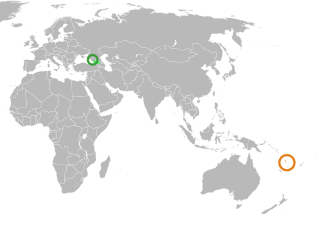
Abkhazia and Vanuatu established relations when Vanuatu recognised Abkhazia's independence on 23 May 2011. On that day a joint statement on establishment of diplomatic relations was signed. However, the exact nature of the recognition was a matter of dispute and was not regularized until July 2013. However, over the years and part of domestic powerplay within Vanuatu's government, the recognition has swung back and forth. In 2019 Vanuatu's minister of Foreign Affairs "confirmed Vanuatu’s support of Georgia’s sovereignty and territorial integrity" and effectively withdrew the recognition of Abkhazia.
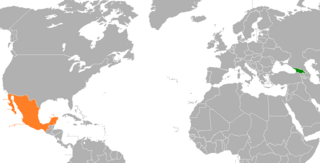
Georgia–Mexico relations are the international relations between Georgia and Mexico. Both nations are members of the United Nations.

China and Croatia established diplomatic relations on May 13, 1992. Croatia has an embassy in Beijing and a general consulate in Hong Kong. China has an embassy and a Confucius Institute in Zagreb.

Diplomatic relations between the Republic of Azerbaijan and the People's Republic of China were established on April 2, 1992. The relations between the two countries have developed smoothly and high-level exchanges have been close. The PRC embassy in Baku openly commends Azerbaijan for supporting its stance on the political status of Taiwan, Tibet's sovereignty, the conflict in Xinjiang, and the suppression of Falun Gong. All political forces have actively advocated strengthening friendly cooperation with China. China was one of the first countries to recognize independence.
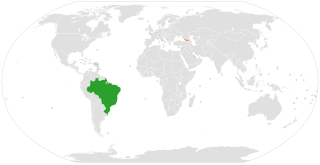
Brazil–Georgia relations are the international relations between Brazil and Georgia. Both nations are members of the United Nations.

Abkhazia–Tuvalu relations refers to bilateral relations between the Republic of Abkhazia and Tuvalu. Tuvalu recognized Abkhazia's independence on 18 September 2011. Tuvalu has since withdrawn its recognition on 31 May 2014 and has established diplomatic ties with Georgia.

Georgia–Slovenia relations are the bilateral relations between Georgia and Slovenia, two European nations with a communist past that established their bilateral ties in 1993. Their relations have been highly represented with a close diplomatic partnership, with Slovenia being one of the staunch supporters of Georgia's territorial integrity and pro-Western path. Both nations are members of the Council of Europe.
The China–Central Asia–West Asia Economic Corridor is an economic and transportation corridor of the Belt and Road Initiative, a global economic connectivity program led by China. The corridor was one of the 6 land corridors articulated in the initial vision for the BRI in 2015. It has since the 2nd Belt and Road Forum in 2019 become one of 35 corridors and project officially included in the BRI.




















